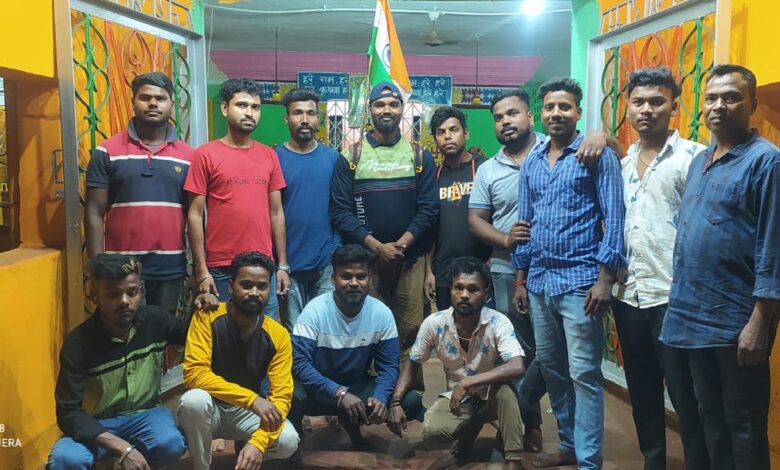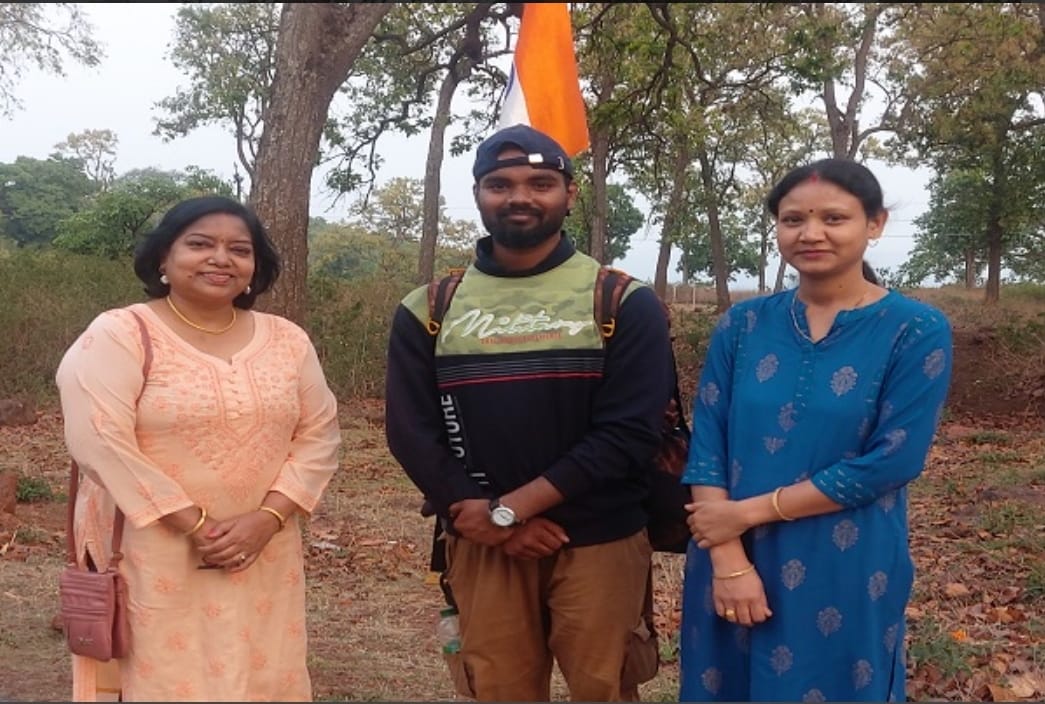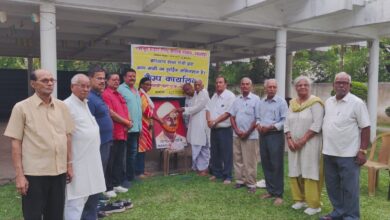झारखंड पदयात्रा पर निकले आर्य पहुंचे गुवा और किरीबुरू, लोगों ने बढ़ाया हौसला

चाईबासा। झारखंड की संस्कृति तथा परंपरा को बचाने के लिए हाथों में राष्ट्रीय ध्वज लेकर पदयात्रा पर निकले बोकारो के आर्य गुप्ता शनिवार को किरीबुरू पहुंचे। यहां उनका कई लोगों ने हौसला बढ़ाया। इस दौरान सभी उनसे बेहद उत्साह के साथ मिले और उनकी इस पहल की सराहना की। इससे पहले आर्य गुप्ता ने गुरुवार को गुवा पहुंचे। जहां लोगों ने उसका हौसला बढ़ाते हुए अपने लक्ष्य को प्राप्ति के लिए कामना किया। आर्य गुप्ता गुवा में बीएमएस कार्यालय में दो रात विश्राम के बाद आज शुक्रवार को किरीबुरू के लिए रवाना हो गए। इस दौरान आर्य गुप्ता ने बताया कि झारखंड में लोगों की आवश्यकता से जुड़ी सभी चीजें है।  यहां खूबसूरत जंगल, पहाड़, प्राकृतिक झरने, खनिज व वन सम्पदा मौजूद है। यहां की कला-संस्कृति, वेश-भूषा लोगों को आकर्षित करती है। झारखंड में पर्यटन को बढ़ावा देकर बडे़ पैमाने पर पर्यटकों को आकर्षित किया जा सकता है। पर्यटन बढ़ने से रोजगार की संभावना बढे़गी। उन्होंने सभी से झारखंड के जंगलों व पर्यटक स्थलों को बचाने की अपील की। कहा कि वह गांव-गांव में जाकर लोगों को कला संस्कृति व आदिवासी परंपरा की रक्षा, जंगल बचाने का भी आग्रह कर रहे हैंं। झारखंड के स्वतंत्रता सेनानी व जन नायकों से भी मुलाकात कर उनके योगदान को जानने व लोगों को अपनाने की अपील कर रहे हैं। बता दें कि आर्य गुप्ता ने 18 दिसंबर को बोकारो से इस पदयात्रा की शुरुआत की थी।
यहां खूबसूरत जंगल, पहाड़, प्राकृतिक झरने, खनिज व वन सम्पदा मौजूद है। यहां की कला-संस्कृति, वेश-भूषा लोगों को आकर्षित करती है। झारखंड में पर्यटन को बढ़ावा देकर बडे़ पैमाने पर पर्यटकों को आकर्षित किया जा सकता है। पर्यटन बढ़ने से रोजगार की संभावना बढे़गी। उन्होंने सभी से झारखंड के जंगलों व पर्यटक स्थलों को बचाने की अपील की। कहा कि वह गांव-गांव में जाकर लोगों को कला संस्कृति व आदिवासी परंपरा की रक्षा, जंगल बचाने का भी आग्रह कर रहे हैंं। झारखंड के स्वतंत्रता सेनानी व जन नायकों से भी मुलाकात कर उनके योगदान को जानने व लोगों को अपनाने की अपील कर रहे हैं। बता दें कि आर्य गुप्ता ने 18 दिसंबर को बोकारो से इस पदयात्रा की शुरुआत की थी।


